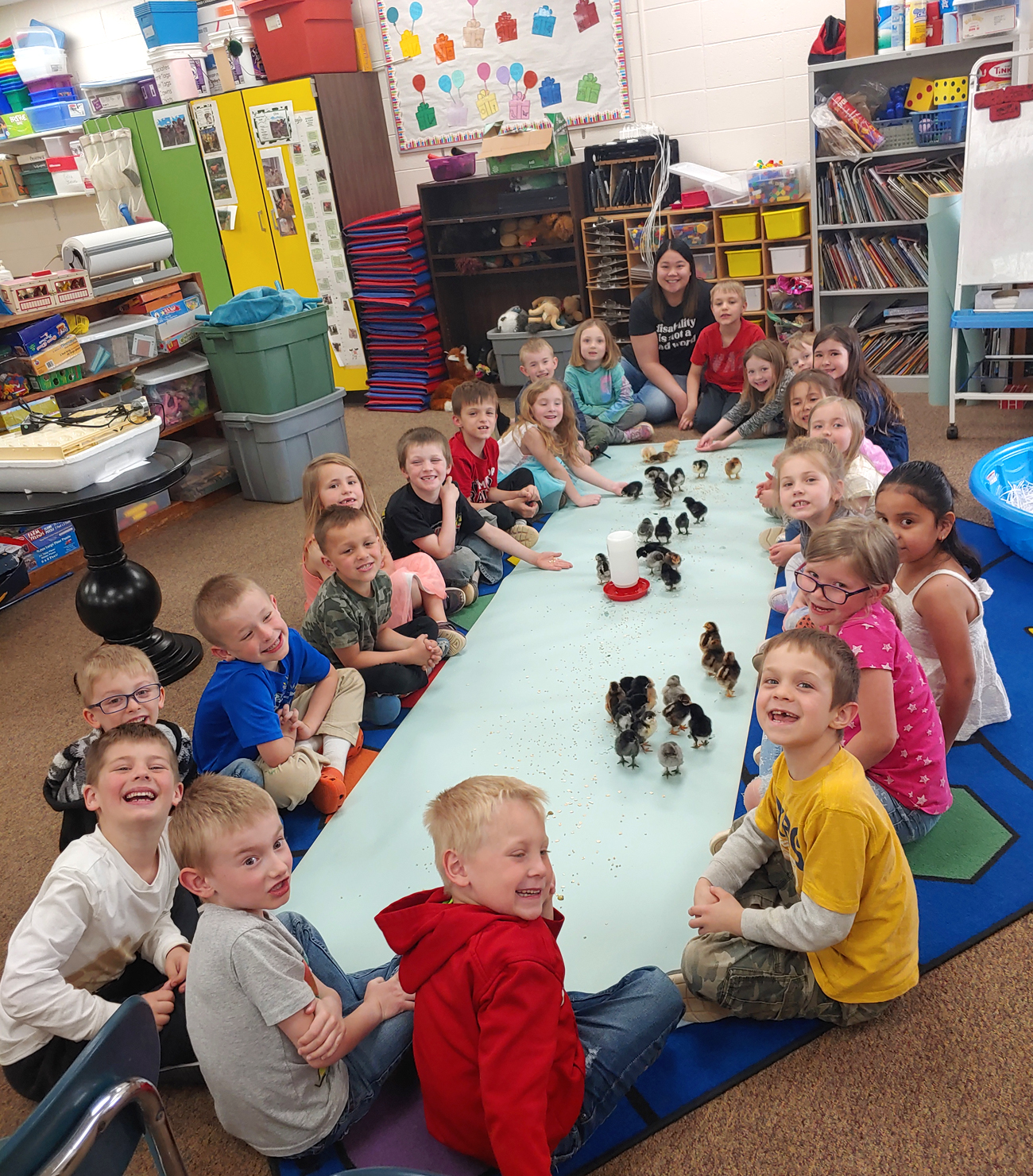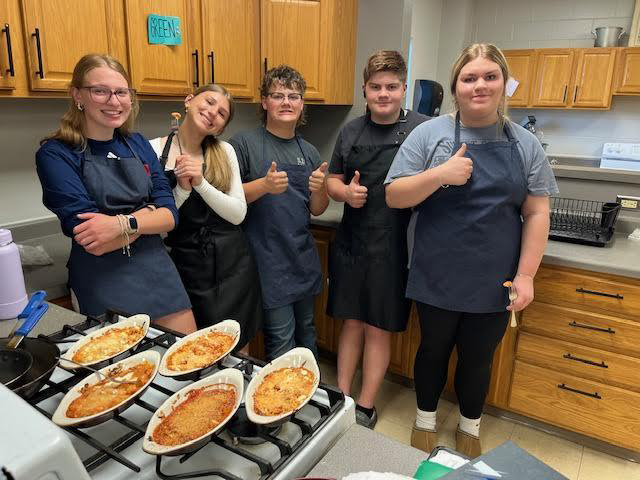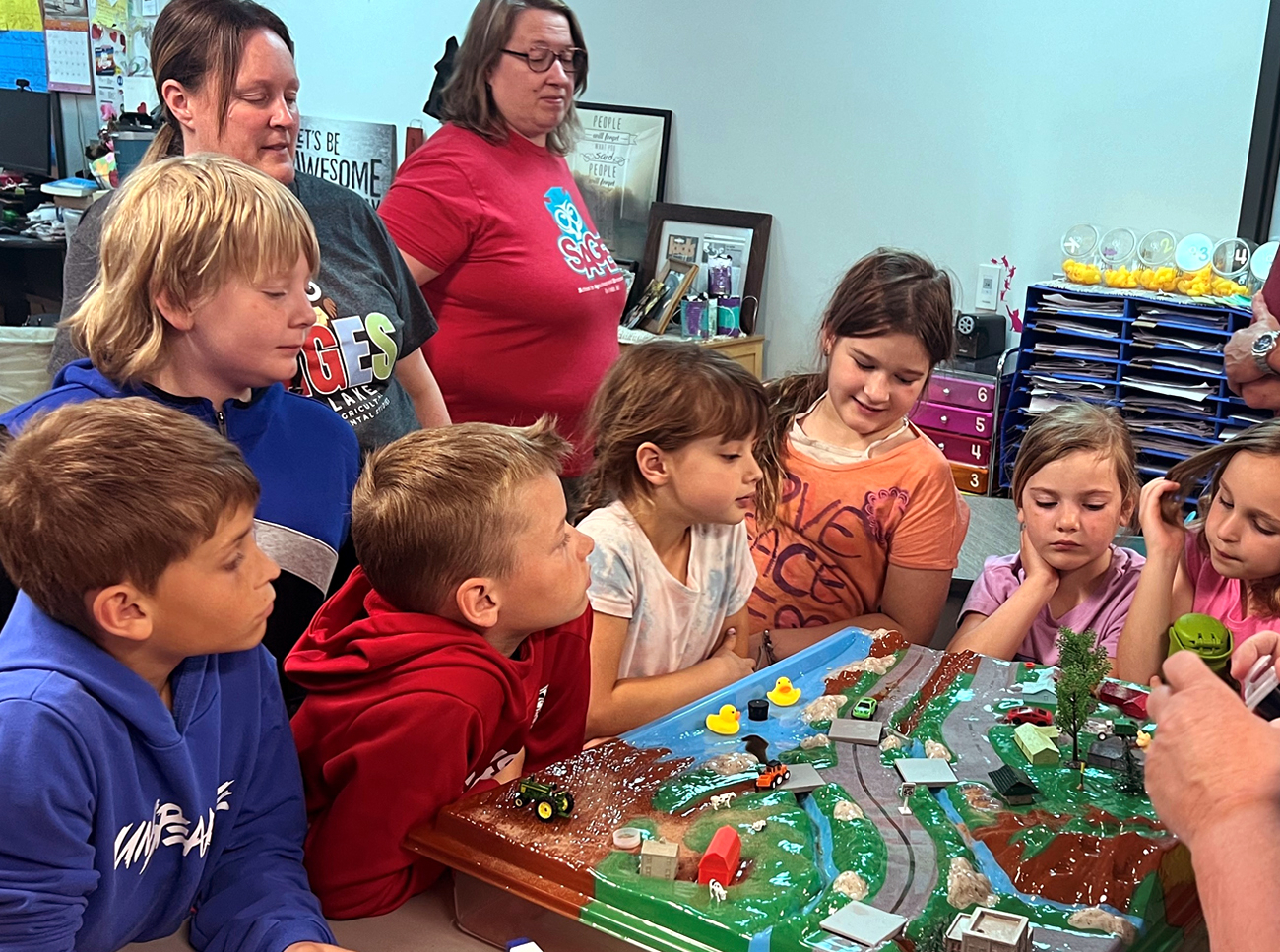Grants
Agriculture in ALL Classrooms Grant
Agriculture impacts our lives every day in all subject areas – STEM, ELA, Social Studies, Art, Music...the possibilities are endless! Let your creativity be your guide to incorporating agriculture themes into unexpected curriculum and bring relevance and context that enhance student learning in any space. Formal and non-formal (volunteer) educators and/or groups are eligible to apply for Agriculture in ALL Classrooms Grants of up to $500 per grant.
Spring Ag in ALL Classrooms Grant Recipients Announced.
Wisconsin Farm Bureau Foundation's Agriculture in the Classroom program has awarded $5,000 to educators and agriculture literacy programs.
Grant dollars will support innovative core curricula initiatives that incorporate agriculture concepts while helping students meet academic standards and develop career readiness skills.
Groups, schools and educators can apply for up to $500 as part of the Agriculture in the Classroom 'Ag in ALL Classrooms' grant program.
Agricultural literacy projects that have been awarded funding include:
The 6th grade community service-learning class at South Milwaukee Middle School will rehabilitate an onsite, neglected greenhouse that has been dormant for nearly 20 years.
A beekeeping program will be integrated with the school's existing native pollinator garden to enhance student understanding of agriculture, pollinators, and sustainability.
Fall River Culinary Arts 2 program students will explore poultry, hog, and beef, mastering grinding, stuffing, and smoking techniques.
Students will map out a cut flower garden, learn how to stagger planting times, harvesting, and the creation of bouquets while exploring careers in plant science.
Taylor County fourth-grade students, staff, and volunteers will rotate through 15-minute sessions to learn about diverse agricultural topics to increase agricultural knowledge while literacy tying science, technology, engineering, arts, and mathematics to agriculture.
Students will design and build a medicine garden on the Menominee Indian High School campus to explore the interconnectedness of people, plants, and the land, aligning with traditional Menominee values of sustainability and reciprocity.
Second-grade students will be immersed in the life cycles of frogs, butterflies, and plants – lessons that will promote a deeper understanding of agriculture's role in our lives.
This experimental project will utilize both synthetic and analytical methods to find “happy neutral ground” between organic and chemical fertilizers, providing fundamental data which may be directly compared with that of other notable studies.
Over three weeks, students get real-life experience of the egg incubation process where they learn about what the egg or chick needs for survival, the daily embryo development, what other animals hatch from eggs, the lifecycle of chickens, what the embryos eat while in the egg and chicks eat after hatching, and what the farmer may do on the farm with his or her own chickens.
The farm-to-table project aims to engage high school students in understanding the journey of common fruits and vegetables from local farms to their plates. Students will explore the nutritional benefits these foods provide, learning to recognize essential vitamins and minerals.
The next Ag in ALL Classrooms request for proposals will open in Fall 2025.
Get inspired by reviewing previously funded projects
Trout in the Classroom

Students raised and released 48 rainbow trout from January-May 2024. Students oversaw daily feeding and water quality monitoring. They also learned about the life cycle, natural habitat, and conservation efforts. Grant money was used to fund equipment necessary for raising trout in a recirculated system and the bus costs for the release field trip.
"This was our most successful year ever! Thank you for your support!"
– Jenna McCann, Merrimac Community School
Drones in Agriculture

The budget money was used to purchase software (Pix4D Fields) to analyze field data from multispectral drone mapping. Over the summer of 2023 students and staff mapped several local fields and forests. Then using the Pix4D and its Artificial Intelligence, we looked at the fields to understand and analyze the data. Identifying areas of draught, low nitrogen levels and weeds were only a small part of the software's capabilities. This was done with all the Remote Pilot classes in the fall of 2023 and spring of 2024.
Hatching Chicks

With our Chick Hatching grant, the kindergarten classes successfully hatched 37 chicks and 2 ducks. We used the grant money to purchase a top of the line Brinsea 56 EX fully automatic incubator. This incubator is typically around $700. I found an amazing sale and offered them for $479. We used the remainder of the grant money to purchase chick food for the classroom. The new incubator replaced our old incubator which made viewing hatching difficult and was starting to have very inconsistent hatches due to being old/worn out. With our new incubator we had a 95% hatch rate and the teacher workload to control humidity/egg turning and monitoring temperatures was minimal.
"We were so excited to have received the grant this year. We are thankful to Ag in the Classroom and WI Farm Bureau for supporting this program!"
– Brooke Behling, Stetsonville Elementary School
Artisan Cheese

Cheese making principles and techniques were implemented into an introductory culinary class. The course began by introducing the history and significance of cheese in various culinary traditions. Next, students explored the cheese making process with hands-on labs that included making mozzarella cheese and preparing a dish, "Three Cheese Gnocchi Bake," that featured four different cheeses. Additionally, to reinforce learning, students engaged in tasting sessions and learned to pair different cheeses with accompaniments. Throughout the unit, emphasis was placed on food safety, sanitation, and sustainable practices, while highlighting potential career paths in the cheese industry.
"This was unit was so much fun and remarkably delicious!"
Enviroscape

Every student and teacher at SAGES participated in one of six interactive workshops facilitated using Enviroscape – a model to demonstrate various types of pollution and the impact to watersheds. The pilot program was tested with students in grades K-6. In addition, a lot of additional "pollutants" and accessories to the teaching model and manual. The Enviroscape model helped students to visualize the flow of water through our community.
"During our test program, the I learned that a parent of a student at SAGES used to be a trainer/educator for the Enviroscape in Georgia! She has a lot of very helpful suggestions and provided a lot of guidance on how to make the presentation even more impactful and interactive. This education tool will be used for community outreach and throughout the district going forward."
